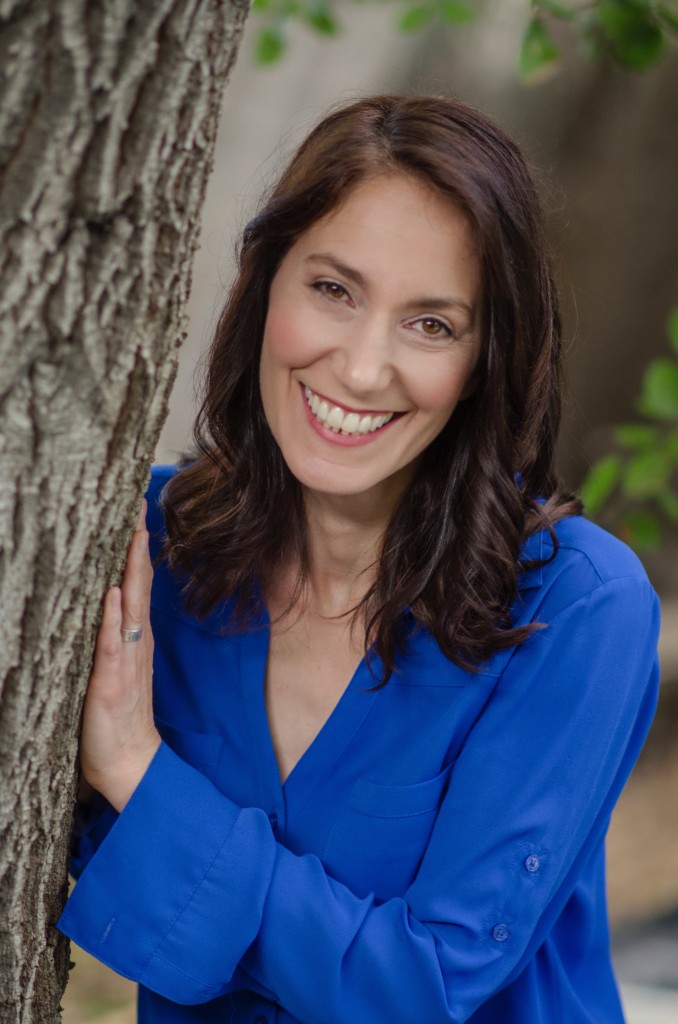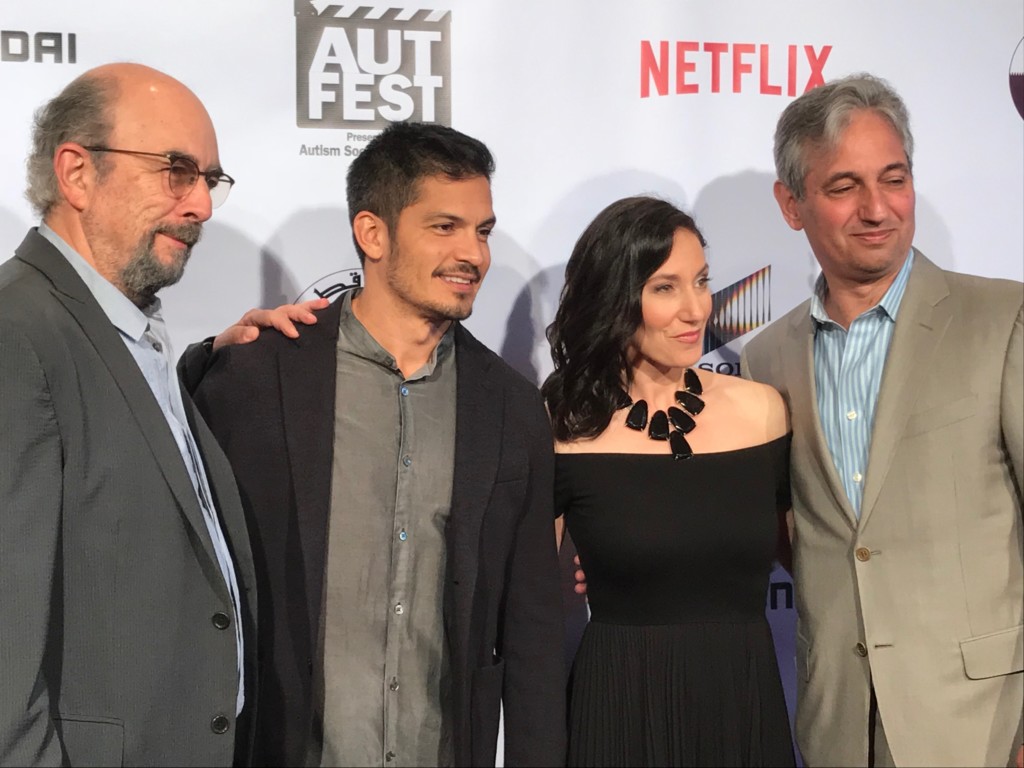This guest Q&A is with Melissa Reiner, MEd. Melissa is considered by leading Pediatric Neurologists and Developmental Pediatricians as one of the top behavioural and autism consultants in California. She currently works as the Autism Consultant on ABC’s, The Good Doctor, and is the author of several books, including, Amy Amygdala, available on Amazon now.
Hey Melissa! How did becoming a full-time autism consultant on the hit ABC show ‘The Good Doctor’ come about?
 I was brought in by one of the producers with whom I had worked to help their child years before. I met with David Shore and Erin Gunn and spoke with them about the work I do in the field of autism. Then, they ended up flying me up to Vancouver for the pilot episode to meet and work with Freddie Highmore, who expertly plays the role of Dr. Shaun Murphy. The goal was to ensure that this character would not end up as a caricature in any way, and that this unique and wonderful individual was portrayed precisely as he is, a human being who has challenges and triumphs. The fact that he also has a diagnosis of autism, is only one part of who this person is. More often than not, it is Dr. Shaun Murphy who teaches those around him a little bit more about life and how best to live it. It is such an absolute honour to be a part of this project.
I was brought in by one of the producers with whom I had worked to help their child years before. I met with David Shore and Erin Gunn and spoke with them about the work I do in the field of autism. Then, they ended up flying me up to Vancouver for the pilot episode to meet and work with Freddie Highmore, who expertly plays the role of Dr. Shaun Murphy. The goal was to ensure that this character would not end up as a caricature in any way, and that this unique and wonderful individual was portrayed precisely as he is, a human being who has challenges and triumphs. The fact that he also has a diagnosis of autism, is only one part of who this person is. More often than not, it is Dr. Shaun Murphy who teaches those around him a little bit more about life and how best to live it. It is such an absolute honour to be a part of this project.
When did you first realize you wanted to help the special needs community? You have quite the impressive background.
I began my work as a one-on-one therapeutic companion working with individuals in their classroom setting. I found myself always dismayed at how parents weren’t really being kept in the loop about what was going on with their child for 3, 5, or 7 hours each day when they were at school. I became certified as a Relationship Development Intervention (RDI) Consultant and then was able to work with the family as a whole. I also received my Master’s degree in Special Education, and developed AskMelissaNow.com, wherein the parents are integral in their child’s growth and development. I work to inspire, educate and empower parents in collaboration with their children to improve communication and levels of competence for every member of the family. I don’t treat a diagnosis, I treat a human being. The more every member of the family finds themselves invested in my process, the more we see results. I feel privileged, every day to engage in such meaningful ways with so many different individuals and families, changing lives and offering real hope.
Self-advocates such as myself have written posts applauding The Good Doctor for their efforts. Are there any self-advocate stories that have stood out to you since The Good Doctor aired? It’s received a great deal of praise in our community.
I often receive edifying emails from individuals, some of whom are residents themselves, and others who have someone in their life, a spouse, a child, a cousin, or a friend who is affected by autism. Every email speaks to how important, The Good Doctor, is to them. It shows each of us that we are not alone and that we can overcome obstacles. These are the self-advocates who strive and grow and prevail. I also feel so strongly, that we seldom see represented in the media, the world of autism outside of the realm of the familial scope. School and home have tended to be the environments in which we see the media portraying individuals with a diagnosis of ASD. But, The Good Doctor, ventures out into the world of employment. This is a vastly underrepresented aspect of life for those with autism, and it is a growing problem and concern for those who work to encourage successful employment for all of the kids who are now becoming adults and are ready to take on a career. The Good Doctor is offering a vital glimmer of what hurdles and achievements one may face as the issue of employment is explored.
Are there any special moments you’ve had on the show that have stood out to you so far?
AskMelissaNow.com focuses on shifting our communication style. We know that many adults, parents and teachers, for example, speak to most children and adults using imperatives and interrogatives. We have found that the recipient of an interaction based on the predominant use of these commands and questions experiences a spike in heart rate and blood pressure, tantamount to an anxiety response. In all my 15 years in this field, I have never worked with someone who does not have a co-occurring issue, to some degree or other, of anxiety. When we speak declaratively, however, we don’t see that same spike in heart rate and blood pressure.
In the pilot episode of, The Good Doctor, the writers were able to integrate what they had gleaned from our discussions about the work I do, and there are myriad examples of instances when characters speaking with Shaun are utilizing this very same declarative communication style so that Shaun is able to more productively and adeptly respond and interact with his partners in his world. That is exceptional to me, to see the work I do brought to life in the writing, and performance for this show.
In recent years, movies (Extremely Loud & Incredibly Close, Joyful Noise, Jane Wants A Boyfriend) and TV series (Atypical and The A Word) have all featured characters who are on the autism spectrum. Do you think our entertainment industry has done a good job of making these portrayals realistic?

I believe that any time the entertainment industry brings us examples of diversity, neuro-diversity not withstanding, in the case of the aforementioned movies and TV shows, like, The Good Doctor, we are paving the way for those whose lives have not been touched by autism, to begin to understand or at least open the dialogue for a deeper understanding of those who have.
Autism is obviously a spectrum that affects everyone differently but if you could give just one piece of advice to a parent of a child with autism what would it be?
Shifting our communication style is a key factor, which enables us to communicate more effectively with all people. If we offer up opportunities for all individuals to begin to think about how to think, for themselves, then they begin to venture out into the world with a greater level of competence. When I say, declaratively, for example, “I see you’re almost completely dressed, I just hope your feet don’t get cold, because it’s snowing outside.” This affords that individual with the opportunity to think about why I’m saying this, and how it relates to them, and then they discover, for themselves, that they haven’t any shoes or boots on. It is in this moment of discovery where we literally build neuronal pathways in our brains.
We are able to rewire our brains with each discovery we make. These discoveries help us to build competence as we come up with solutions to challenges as they arise. If I continually tell my child what to do, then I am essentially robbing them of their opportunity to build competence through discovery. This competence is crucial in our ability to develop and cultivate social and emotional growth and development from the inside out, rather than superimposing it from the outside in.
Editor’s note: We have certainly come a long way in terms of portraying autism in the entertainment industry (i.e. Rain Man). I applaud the efforts of Melissa on The Good Doctor and if you’d like to learn more about her, along with finding her on her website, you can find her on Facebook, Twitter & Instagram. – Kerry














